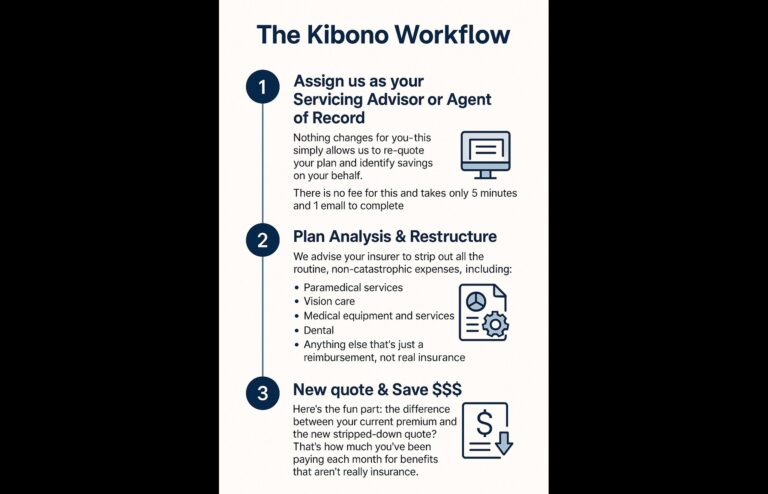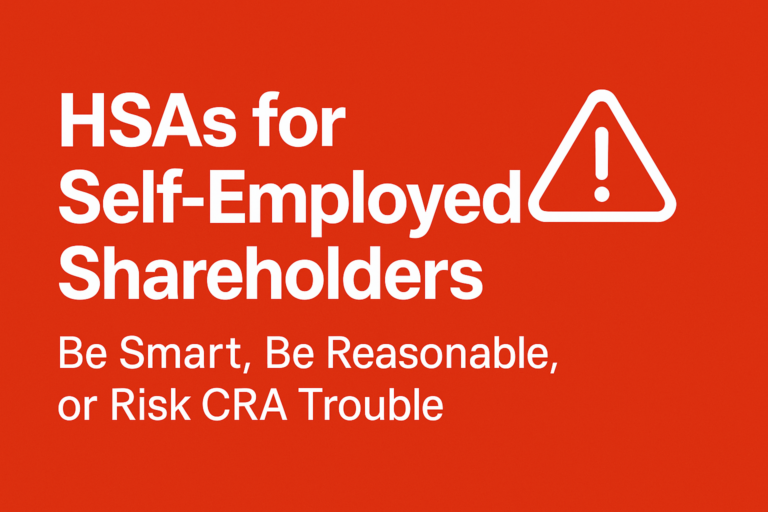A Growing Problem of Bureaucratic Indifference
Why Accountability Is Nonexistent
Here’s the hard truth: there’s no incentive for public servants to act with urgency. If no one is rewarded for doing a better job, no one will bother trying. The result? Ontario businesses suffer while the government machine rolls on, detached and unbothered.
The Finance Ministry’s failures aren’t abstract — they directly affect real people and companies. When enforcement collapses, honest taxpayers are penalized while non-compliant competitors gain the upper hand. For a deeper dive into how Kibono advocates for Ontario business compliance and fairness, visit our insights page.
How Ontario Businesses Are Being Undercut
My company collects and remits Ontario’s Retail Sales Tax (RST) and Premium Tax as required. But out-of-province competitors — particularly Alberta-based Health Spending Account (HSA) providers — are telling Ontario clients they don’t owe these taxes. That’s false.
Despite providing proof of these violations to the Ministry, nothing happens. The Ontario tax enforcement system is broken. Because the Ministry won’t act, I’m forced to charge 10% more than non-compliant competitors — not because I want to, but because I follow the law.
This creates an enormous competitive imbalance. Honest Ontario companies are being priced out of the market while those skirting the law gain a 10% advantage overnight.
The Real Cost of Ignoring Ontario Tax Laws
If you operate in Ontario, your employee benefits — such as Health Spending Accounts or Private Health Services Plans — are subject to two provincial taxes:
Retail Sales Tax (RST) – 8%
The Retail Sales Tax applies to benefit plans, insurance premiums, and health reimbursements. Even if the plan is administered from another province, if the employees live or work in Ontario, the tax applies.
Premium Tax – 2%
The Premium Tax is a separate levy ensuring that group life and health benefits connected to Ontario residents are taxed fairly, regardless of where they’re sold.
Combined, that’s roughly a 10% provincial tax that should be applied to all Ontario-based benefit coverage. Yet many out-of-province providers ignore it — and the Ministry of Finance lets them.
The Unfair Advantage of Out-of-Province Companies
This is more than just a tax issue; it’s a matter of government accountability. Out-of-province firms, especially those based in Alberta, market their plans as “tax-free” to Ontario businesses — a claim that directly contradicts the law.
By refusing to enforce compliance, the Ontario Ministry of Finance incompetence allows a race to the bottom where ethical businesses lose and dishonest ones win. The cost isn’t just financial; it’s a loss of trust in government and fair competition.
For business owners looking to stay compliant while remaining competitive, Kibono provides transparent, tax-compliant Health Spending Account solutions in Ontario.
Why Enforcing Tax Compliance Matters
Ontario already faces high energy costs, heavy payroll burdens, and increasing living expenses. Adding a 10% disadvantage due to lack of enforcement pushes many small businesses to the edge.
This isn’t about politics — it’s about fairness. A level playing field. A government that enforces its own laws instead of punishing compliance. Until that happens, Ontario businesses will continue paying the price for bureaucratic neglect.
The Bottom Line: Fix the System
I’ve reported violations, contacted my MPP, and provided evidence to the Ministry, but nothing changes. So this post is my way of shining a light on the issue.
The Ontario Ministry of Finance must take responsibility, enforce existing laws, and stop punishing businesses that play by the rules. It’s time for the Ministry to prioritize fairness and integrity — before even more Ontario companies pay for its inaction.
For more insights on compliance, fairness, and small business advocacy, explore Kibono’s blog — where we help business owners navigate Ontario’s complex financial landscape with confidence.





